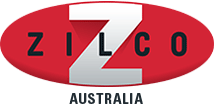For years the use of leather for harness has been the industry tradition and often the favourite one; some people still prefer leather today. Synthetic harness, however, has become a very strong competitor to leather for many reasons. Leather looks good and smells nice, but producing and maintaining it is time-consuming and expensive. Leather can also be heavy. Synthetic materials on the other hand eliminate these disadvantages. Zilco has been making high-quality synthetic harnesses since 1962 and today is recognised as a world leader in the equestrian market for a variety of disciplines such as endurance, carriage driving, racing and harness racing. The quality of synthetic materials has improved significantly over the past few decades. Today there are countless options for synthetic harness on the market providing a wide choice for the buyer to suit what they prefer for their horse. So let’s a have look at the benefits of synthetic harness and why it is the best horse tack! Webbing is a strong fabric woven made from different types of fibres. It is a versatile component used in many fields such as climbing, automotive safety, and the military. The combination of fibres making the webbing determines the harness' strength. It influences not only the look and feel, but also resistance to cuts, abrasions, dirt, chemicals and moisture such as water and sweat, as well as reaction to cold, heat, and sunlight.
Strength and Stability
Webbing often comes from materials like PP. This synthetic polymer offers superior strength, wear-resistance and optimal flexibility in the toughest conditions. The webbing is coated with PVC to increase durability and resistance to abrasions. To ensure a permanent bond between the webbing and the PVC, the webbing is coated with glue before the PVC is applied.
One of the most important properties of synthetic materials is tensile strength, the pulling stress required to break a material. The greater the tensile strength of a fibre, the greater is the load its yarn can bear. Synthetic materials have a much higher tensile strength than leather which means higher flexibility and adaptability in cold and hot weather. However, harnesses come with holes for tongues and buckles so the critical factor is the eye tear strength, the pull required to tear a punched hole. This strength is directly related to the amount of yarn used in the weft of the webbing. A thicker weft strengthens the yarn when holes are punched. Zilco focuses on the quality of the weft. The webbing is designed and weaved in-house making the final product inimitable and superior.
Weight
Synthetic harness is much lighter than leather. This is an important factor, especially when training horses and competing in the marathon phase of the competition.
Look
The woven webbing coated with PVC gives the harness that leather look and feel without having to go through a tanning process.
Care and Maintenance
Leather harness requires glycerine-base soap for cleaning. It is important that no residues are left behind. Synthetic harness can safely be cleaned with warm soapy water and disinfected in a mild solution of multi-purpose disinfectant, with no damage to the materials. Synthetic materials don’t require any conditioning afterwards.
Biosecurity
The PVC coating not only protects the harness from abrasions and cuts but makes it 100% water, sweat and bacteria resistant. This is paramount in maintaining high biosecurity standards in the yard and helping prevent infection during outbreaks of equine flu and equine herpesvirus.
Durability
As previously mentioned, the quality of synthetic materials has improved significantly over the years making the expected lifetime of synthetic harnesses much longer than traditional leather.
Ethical Issue
Leather harness comes from tanned animal rawhide, generally from cattle sourced from slaughter facilities, an ethical dilemma for everyone against animal cruelty.
The use of synthetic materials removes this dilemma; no animals are slaughtered for the production of synthetic harness. This is the core of Zilco’s philosophy, all products are designed and manufactured whilst ensuring no animal cruelty.





